‘They got capacity charges for 16yrs. Not anymore’
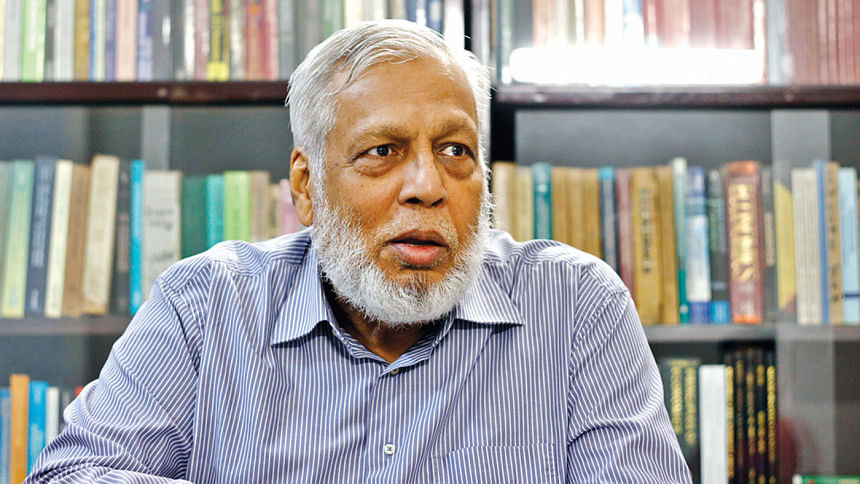
A retired bureaucrat, Muhammad Fouzul Kabir Khan has been tasked with heading three significant ministries for the economy: power, energy and mineral resources; road transport and bridges; and railways.
The Daily Star sat down with him for a comprehensive interview on his plans for the three ministries, which are mired in allegations of mismanagement and corruption by the previous Awami League-led government.
The Daily Star: What has your experience been so far?
Adviser: People have heard stories of development over the years -- that the per capita income has soared, the GDP growth is high, the economy has grown and so on. But people could not relate themselves to those big numbers -- their way of life was contrary to the numbers.
The Awami League government had created a chain of corruption. Those who belonged to the chain were the beneficiaries only. As a result, people wanted an overhaul of the system -- an end to all types of corruption. So, our main focus is on what people want and what their expectations are.
DS: What is the situation in the power sector now?
Adviser: A network of corruption was created here too and the anchor of that architecture was the Indemnity Act of 2010 (Quick Enhancement of Electricity and Energy Supply-Special Provisions).
The decisions made under this act were without proper scrutiny -- some were given all the benefits. So, we decided that we would not continue that act. We have formed an independent committee to review all the deals signed under this act.
We have suspended new projects that were taken up under this act and we are scrutinising projects that have started or nearing completion.
We are floating tenders and following the Public Procurement Rules 2008 in taking up new projects or procurements.
DS: What is the fate of the power plants that have been taking capacity charges without producing electricity?
Adviser: We are not extending any agreement with such power plants. We have said that no plant will get a tenure extension. Some came to me saying that if we don't extend the tenure, it may create problems in particular areas. But we asked them how a deal signed for five years was extended to 16 years. You enjoyed capacity charges for 16 years -- not anymore. Due to those quick rental plants, the power tariff has increased.
DS: How do you see the power sector when you leave your position?
Adviser: The main problem in this sector is the lack of energy supply. Our gas production is declining. We are emphasising gas extraction through BAPEX. The plan is to drill 50 wells next year and 100 wells the year after.
Our next strategy will depend on the success of the drilling process. If we get at least 1-2 trillion cubic feet of gas reserves, we will take a strategy. If not, we will import liquefied natural gas.
If needed, we will set up two more floating storage regasification units. One will be installed in the south and another in Moheshkhali. But we will go through the tendering process.
We are also trying to figure out how we can import fuel at a cheaper rate. Besides, we are trying to reduce the subsidy burden of the Bangladesh Power Development Board without increasing the power tariff.
Initiatives have been taken to float tenders for 40 renewable energy projects and those will reduce the power tariff.
DS: What is the current debt status of the power and energy sector?
Adviser: When we took charge, several companies wrote to us that if we don't pay their dues within a certain period, they will stop the supply. India's Adani Power also stressed their payments.
There were dues of about $1.2-1.5 billion only in the energy sector. That has now dropped to $700 million. The situation is fairly satisfactory now.
DS: You have curtailed the power of the ministry in setting fuel prices to make Bangladesh Energy Regulatory Commission stronger, but prices of some products like diesel, petrol and jet fuels are still being set by the Bangladesh Petroleum Corporation. Is there any plan to let BERC deal with such products in future?
Adviser: We need to think more about it. Sometimes, the fuel price shoots up in the global market and sometimes it drops drastically. There is a method for fuel pricing -- if the price goes up too much in the global market, the government may want to keep it normal by providing subsidies. But if the responsibility is given to BERC, they will go for manual pricing and the public interest may be compromised. We will discuss it more.
DS: Electricity customers are fed up with the charges of prepaid and postpaid meters. Do you have any plans?
Adviser: I am facing questions on this from even my relatives. All types of consumers are fed up with this meter charge. We told BERC to identify the problem first -- let's see what we find.
DS: People want to know the status of the mega projects and their future.
Adviser: I have been visiting such project sites myself. I get disappointed everywhere as public interest was not considered while taking most of those million-dollar projects. Most of them were taken up considering the vested interests of some groups.
It was never considered how the projects would serve the people and how many people would they serve. For example, the Padma rail link project was taken at a cost of Tk 40,000 crore. I asked the officials what their revenue target was and they said about Tk 1,400 crore a year. When I wanted to know the current revenue, I found that the project fetched Tk 37 crore in the first six months.
Although the revenue will increase when the line connects Jashore from Bhanga, but how much? It may rise to Tk 80 crore or Tk 100 crore, but where will Tk 1,400 crore come from?
Let us have a look at another project in the Matarbari area of Cox's Bazar. There was supposed to be a port and an export processing zone (EPZ) built in the area and those would require electricity. It's very logical.
But when I visited the area, I saw that there was no port or EPZ. However, the power plant has already been completed. Why is this? It's because someone involved with the corruption network wanted a power plant and got it. Where is the public interest here for a Tk 42,000 crore project? It remains on paper only.
DS: How do you define such projects and what will be their fate when they are already completed?
Adviser: All are vendor-driven development in the name of public interest. The vendors wanted work and the government awarded them. There was no collaboration between the projects. For instance, there is a power plant but the transmission line is yet to be completed. If there is a pipeline, the gas supply is absent. We are trying to create a linkage between the completed projects to get the result with lower costs.
DS: Let's talk about the transport sector.
Adviser: It's the same, the characters of the projects are no different. The cost of repairing a road is huge. Though they followed the PPR and initiated a good practice of e-tendering, we have seen some loopholes in the process. E-tenders have changed the culture of using muscle power to win tenders. But the people to whom the tenders are submitted or who lead the process have become corrupt -- this has been acting as a bigger deterrent than muscle power.
DS: Can you provide us with examples?
Adviser: Some of the project directors let the vendors know the base price of the quotation. Some tender notices are designed in a way that a pre-selected vendor is awarded. As a result, the winners of the tenders are the same partisan people who were involved with the government.
Besides, there is a clause that requires experience. As a result, strategies were adopted to benefit those who are experienced. And for the next project, the conditions are set in such a way that only those blessed ones are eligible. This is how oligarchs were created in every sector.
DS: Does it mean that the PPR will be reviewed?
Adviser: Yes, we have formed a committee of advisers including Wahiduddin Mahmud, AF Hassan Ariff, Syeda Rizwana Hasan and Adilur Rahman Khan. I am also there to review the PPR. We are now reading working papers.
DS: Extension of project tenure has become a regular occurrence.
Adviser: It has become a culture. There are some arguments to increase the tenure but most of them are illogical. We have taken a position here: projects must be completed within the allotted time.
DS: What is the condition of the railway?
Adviser: There are problems related to the train schedule and routes. Many complain about not getting tickets online. We have taken the initiative to probe if there are irregularities in the ticketing app Shohoz. We have a shortage of locomotives and carriages, and deficiencies in lines. There are unnecessary projects here, too.
DS: One metro rail has been built in Dhaka. What will be the fate of the other metro projects taken by the previous government?
Adviser: There are no plans to cancel metro initiatives. However, the project costs will be reviewed.
We are trying to set the right people in the right places. Interestingly, the former managing director of Dhaka Mass Transit Company MAN Siddique has created a rule that nobody except former secretaries will be able to hold the post and he didn't create his successor. This is a technical place -- how can a former secretary be effective here?
Those who have knowledge about metro rail operations will lead the management of the metro rail company in Dhaka. There are many Bangladeshis abroad. We will form a technical committee to find the right person.
DS: There is little time and public expectation is huge from this government. The results are not visible yet.
Adviser: People don't see the work behind the scenes. The results will be visible soon -- people will feel it.


 For all latest news, follow The Daily Star's Google News channel.
For all latest news, follow The Daily Star's Google News channel. 

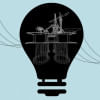

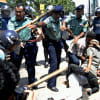
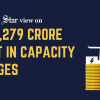


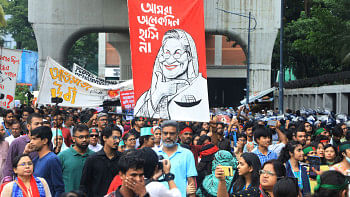
Comments